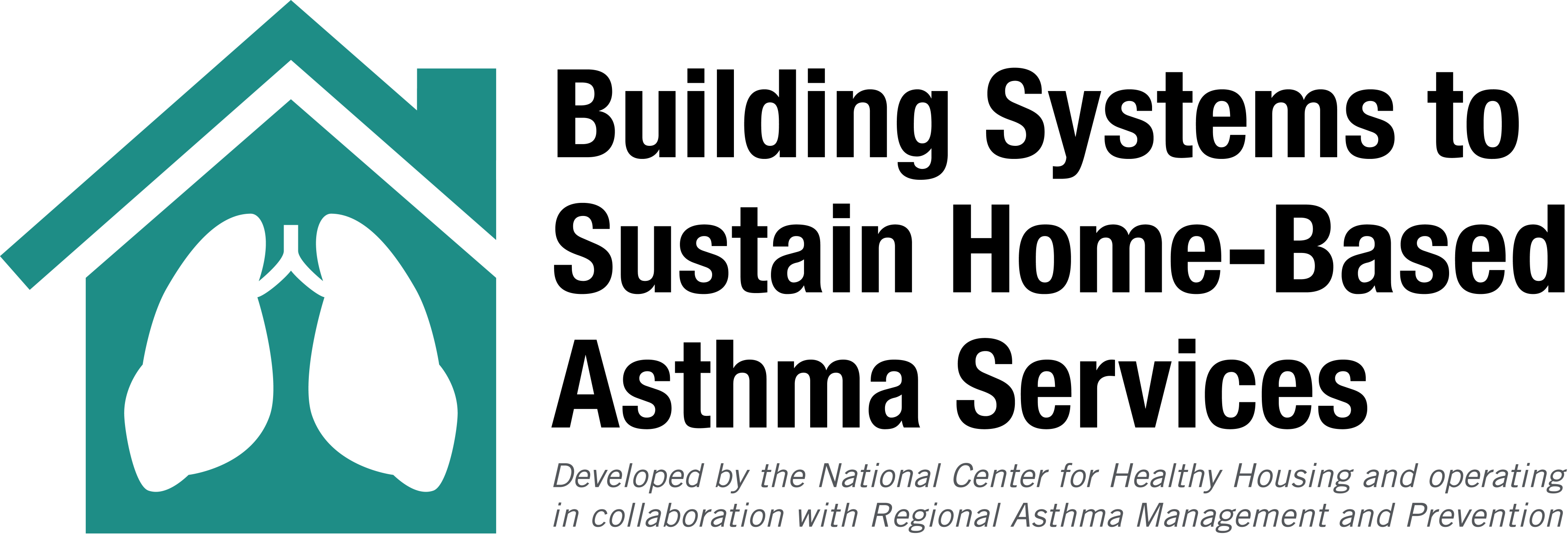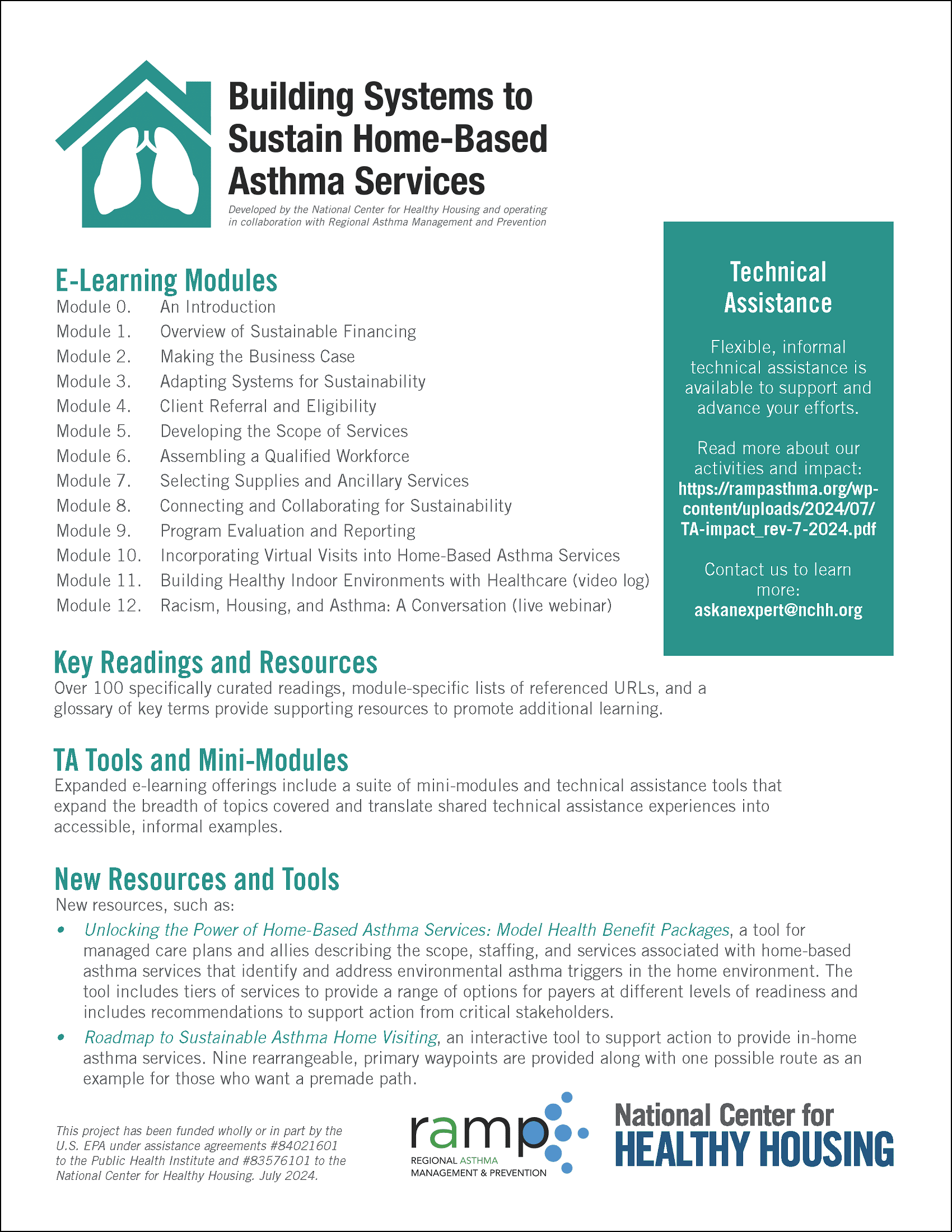
Building Systems to Sustain Home-Based Asthma Services
Why?
The implementation of asthma home visiting programs has traditionally been limited in scale, but the momentum building around healthcare reform has increased opportunities for states to consider more sustainable and widespread implementation. Some states have already invested heavily in developing programs, policies, and funding to widen the geographic scope of existing asthma home-visiting programs and sustain existing efforts. However, many states may be unsure about how to translate experiences in other regions into action in their own.
What?
In collaboration with the U.S. Environmental Protection Agency (EPA), NCHH has developed an e-learning and technical assistance platform to support the launch and growth of large-scale, evidence-based, sustainable asthma home visiting programs. With guidance on topics such as Medicaid reimbursement opportunities and other financing options, developing a business case, scaling up, referrals and eligibility, staffing and training, supplies and services, community resources, and evaluation and reporting, each of the primary 11 e-learning modules offers a deeper look into some of the topics and strategies to consider while working to design and implement home-based asthma services. Shortly after the 2017 launch of the original course, NCHH and a team of expert partners expanded these initial e-learning offerings by developing a suite of mini-modules and technical assistance tools that expand the breadth of topics covered and translate shared technical assistance experiences into accessible, informal examples.
Under a new 2021 cooperative agreement with EPA, NCHH and Regional Asthma Management and Prevention (RAMP), a project of the Public Health Institute, will expand the existing e-learning content to not only support ongoing demand but also create new modules to address new innovations and evolving environments.
Who?
Building Systems to Sustain Home-Based Asthma Services will equip staff in public health agencies, state asthma control programs, state Medicaid agencies, and other housing and health organizations with information about how to build the systems, infrastructure, and financing needed to support and advance their efforts to establish or expand home-based asthma services.
How?
Anywhere from 20 to 45 minutes in length each, the modules can be viewed in sequence or as stand-alone topics. Each module includes a wealth of key supporting resources specifically curated to allow users to dive deeper into covered topics, and all available to the public at no cost. Further, the addition of the self-study technical assistance tools allows all users to learn from conversations, requests, and activities conducted between NCHH/partner experts and the technical assistance recipients during the project and see real-world examples of the work going on across the country.
Get Started
Take a moment to:
- Visit NCHH’s e-learning course directory to sign up and access these valuable new resources.
- Explore the modules, key resources, and technical assistance tools, and learn how they can support and advance your efforts.
- Visit Unlocking the Power of Home-Based Asthma Services: Model Health Benefit Packages, a tool for managed care plans and allies describing the scope, staffing, and services associated with home-based asthma services that identify and address environmental asthma triggers in the home environment. The tool includes tiers of services (e.g., from a very basic set of services to more premium sets of services) to provide a range of options for payers at different levels of readiness to provide home-based asthma services and includes recommendations to support action from a range of critical stakeholders.
- NEW Create your own customized roadmap to support you as you embark on your quest to provide in-home asthma services.
- NEW Read success stories from California, Hawai’i, Minnesota, Michigan, New York, and Virginia.
- Contact us to learn more about available technical assistance and/or the project overall.
Latest page update: May 19, 2025.